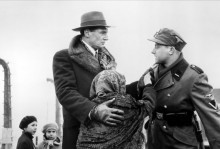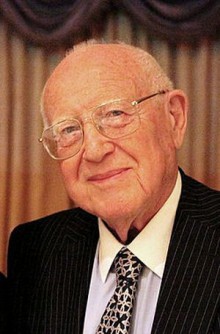Born to a Jewish family in Croatia in 1932, he, having passed through all the circles of hell prepared for humanity and that troubled nation by fascism, and having lost all his family to the terrible Moloch of destruction, and, after first tattooed in Auschwitz, having gone through another death camp in Bergen-Belsen... has still survived. He has survived to be ranked with the most successful and respected producers in Hollywood. His portfolio includes many films and two Oscars: for Schindler’s List (which he presented to Yad Vashem last year) and Gladiator.
Back home, Lustig is not sitting idle at all. (Incidentally, his daughter has returned to Croatia with him, entered the civil service and has had her father’s camp number tattooed on her skin). Despite ill health, he is still very active as a human being and a citizen, and the Festival of Tolerance is not his only project, even though it takes a lot of time and effort. The latter is because it takes place not only in Zagreb, but in all the neighboring countries where events are held as “echoes of the festival.” These events are not attended by guests of honor, but they do involve film screenings and Lustig’s lectures. He is tirelessly working to convince the audience that remembrance of the Holocaust is their sacred duty, required to prevent humanity from ever repeating its horrible actions. And also, to ensure that the victims are remembered forever!
Lustig never stops working on expanding the festival’s horizons. This year, the program included a lecture on the Ukrainian cinema for the first time, and he asked me to be the lecturer. Honestly, I did not expect so much interest, as even after the 90-minute lecture, the audience in the packed hall (including Lustig himself, since he finds everything interesting) spent just as much time questioning me. For the next year, I have arranged with the organizers a special program dealing with the Ukrainian cinema. Meanwhile, the legendary producer found time in his tight festival schedule to answer a few questions specially for The Day’s readers.
This festival means a lot for Croatia and for the whole of Europe nowadays, especially in view of the circumstances in which we live. What do you see as its primary purpose?
“Ever since I came home from America and we started doing this festival, it has had only one purpose: to prevent what happened once (I mean the Holocaust and World War II) from happening again. I am happy to see our message conquering more and more hearts and minds by the year. The festival’s program included my lecture where I discussed the Holocaust, and it was incredibly inspiring to hear the whole audience responding in unison: ‘This should never happen again.’ Very importantly, the venue was dominated by a new generation of viewers. So, the Festival of Tolerance’s decade-long work was not in vain.”
The terrible experience of your childhood has, of course, stayed with you for life. Still, you have found the strength not just to live and stay human, but to become a strikingly creative figure as well. Over your career, you have managed to combine almost incompatible things, starting out as an actor known for childish spontaneity and open perception of life, and then becoming a producer. This profession requires clarity, rational approach, even toughness. How and why did this metamorphosis occur? After all, you never returned to film acting, apart from playing yourself on a few occasions, did you?
“This is a matter of creativity on the one hand, and mastery of one’s destiny on the other. I decided on it back when I was in that damned concentration camp: should I survive, I will be the master of my destiny, not its slave. I remember it also because I saw a terrible example, when seven people, all Jews, were hanged in my presence, and they said (or rather bequeathed, as I see it now!): ‘Tell everyone what happened to us!’”
Despite the fact that you made many films in Hollywood, and three of them won Oscars, I see Schindler’s List as your defining work, because it dealt with the most important thing in your life.
“Yes, it did.”
How did you find this script, this subject, how did you negotiate with the director? How did it all happen?
“It began when they gave me the script that had me won over at once. Then I had a call from Steven Spielberg who said that he had 10 to 15 minutes. He told me: ‘Let us talk, tell me what you think about this script.’ We talked for two hours instead, and at the end of that conversation, he kissed the Auschwitz number which had been burned on my arm. I told him about my camp experience, nothing more. And he said, ‘You are my man, you are duty-bound to be the producer of this film.’”
Why after such a spectacular success of your movies which propelled you into the first rank of Hollywood producers, you decided to leave everything and go back home?
“My age was to blame.”
Your age, really? But I know, I read that, in addition to the festival, and despite your illness, you have creative plans. What are they, exactly?
“It depends on how many hours a day I will be able to work. I have, unfortunately, grown considerably weaker lately.”
One last question about the creative project which, I believe, should be realized. What literary narrative, or what script (or whose work, if you are already able to name the author) is the basis of your next film?
“I would like to make another film, and of course its main theme will be the Holocaust. I do not see myself doing any other project.”
You worked not only in cinema, but also for TV, did you?
“I did a series for American TV which dealt with an issue that I care about. You know the topic well, as it was about the Babi Yar massacre.”
Meanwhile, Serhii Loznytsia has spent years preparing to make a film about it. I think it might be interesting for you, too. He is a brilliant director, known for his films which won prizes at Cannes and many other festivals. He started with documentary cinema and returns to it from time to time now as well. So, I wish you health, and welcome to Kyiv!









